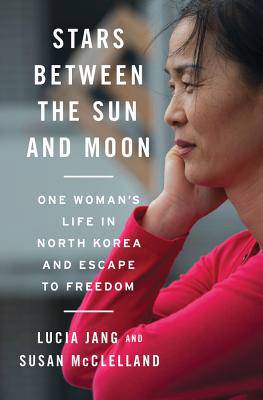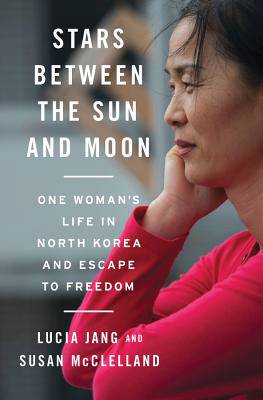
- Afhalen na 1 uur in een winkel met voorraad
- Gratis thuislevering in België vanaf € 30
- Ruim aanbod met 7 miljoen producten
- Afhalen na 1 uur in een winkel met voorraad
- Gratis thuislevering in België vanaf € 30
- Ruim aanbod met 7 miljoen producten
Stars Between the Sun and Moon
One Woman's Life in North Korea and Escape to Freedom
Lucia Jang, Susan McClellandOmschrijving
Born in the 1970s, Lucia Jang grew up in a common, rural North Korean household--her parents worked hard, she bowed to a photo of Kim Il-Sung every night, and the family scraped by on rationed rice and a small garden. However, there is nothing common about Jang. She is a woman of great emotional depth, courage, and resilience.
Happy to serve her country, Jang worked in a factory as a young woman. There, a man she thought was courting her raped her. Forced to marry him when she found herself pregnant, she continued to be abused by him. She managed to convince her family to let her return home, only to have her in-laws and parents sell her son without her knowledge for 300 won and two bars of soap. They had not wanted another mouth to feed.
By now it was the beginning of the famine of the 1990s that resulted in more than one million deaths. Driven by starvation--her family's as well as her own--Jang illegally crossed the river to better-off China to trade goods. She was caught and imprisoned twice, pregnant the second time. She knew that, to keep the child, she had to leave North Korea. In a dramatic escape, she was smuggled with her newborn to China, fled to Mongolia under gunfire, and finally found refuge in South Korea before eventually settling in Canada.
With so few accounts by North Korean women and those from its rural areas, Jang's fascinating memoir helps us understand the lives of those many others who have no way to make their voices known.
Specificaties
Betrokkenen
- Auteur(s):
- Uitgeverij:
Inhoud
- Aantal bladzijden:
- 288
- Taal:
- Engels
Eigenschappen
- Productcode (EAN):
- 9780393249224
- Verschijningsdatum:
- 5/10/2015
- Uitvoering:
- Hardcover
- Formaat:
- Genaaid
- Afmetingen:
- 152 mm x 236 mm
- Gewicht:
- 498 g

Alleen bij Standaard Boekhandel
Beoordelingen
We publiceren alleen reviews die voldoen aan de voorwaarden voor reviews. Bekijk onze voorwaarden voor reviews.











